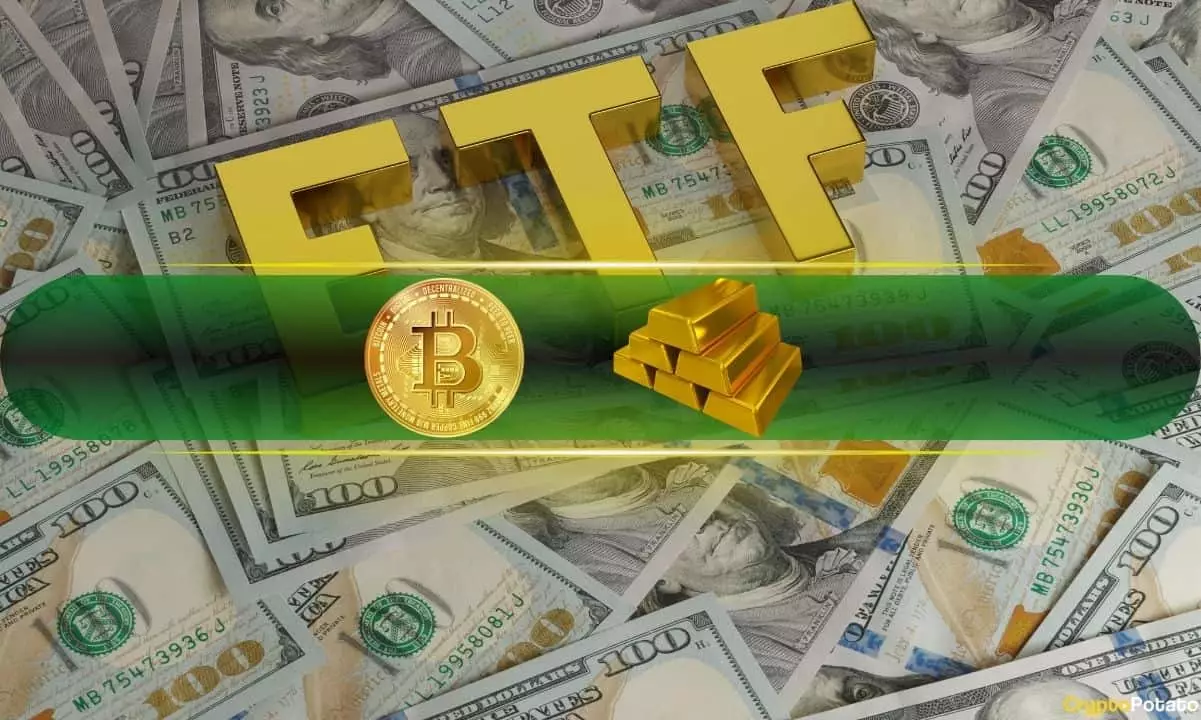The cryptocurrency landscape has evolved dramatically over the last year, particularly with the introduction of spot Bitcoin Exchange-Traded Funds (ETFs). These financial products have sparked considerable enthusiasm among investors, leading to a significant increase in Bitcoin accumulation. An enlightening report from Binance Research highlights that in less than a year since their inception, these ETFs have collectively gathered over 938,000 BTC, amounting to approximately $63.3 billion—representing a notable 4.5% of Bitcoin’s total circulating supply. This newfound investment vehicle has thus redefined market dynamics, generating both excitement and scrutiny from various sectors of the financial world.
Market Dynamics and Investor Sentiment
The investment trends surrounding Bitcoin ETFs are noteworthy. In just ten months, Bitcoin ETFs have managed to achieve cumulative inflows exceeding $21 billion, significantly outpacing the early success of the first gold ETF, which recorded $1.5 billion within its first year in 2005. The trajectory of Bitcoin ETF investments reflects a changing landscape where retail investors represent a dominant force, accounting for approximately 80% of ETF demand. This is a stark contrast to traditional investment environments, where institutional investment typically holds sway.
On the other hand, institutional interest is on the rise. Data indicates that there is a growing number of institutional investors—now surpassing 1,200—which includes major financial players like Goldman Sachs and Morgan Stanley. This shift in investor behavior removes some skepticism surrounding Bitcoin and suggests a gradual acceptance of digital assets as viable investment options, particularly in an environment where Bitcoin increasingly correlates with established financial indices like the S&P 500.
The mechanics of Bitcoin ETFs have led to significant daily market operations. Reports indicate that these funds collectively remove an average of 1,100 BTC from circulation each day. This consistent demand illustrates not just speculative interest but also a deeper draw toward Bitcoin as a legitimate asset class. The steady inflow trend specifically highlights that investor interest has been maintained well after the initial euphoria surrounding the launch of these ETFs. Positive flows have occurred in 24 out of the past 40 weeks, underscoring a sustainable appetite for Bitcoin investment.
The top players in the Bitcoin ETF market—including BlackRock’s IBIT, Grayscale’s GBTC, and Fidelity’s FBTC—command an impressive 84% of total market share. This concentration invites questions about market monopolization but also illustrates the credibility and trust that these well-established firms command in the financial sector.
While the spotlight has largely shone on Bitcoin ETFs, Ethereum counterparts have not fared as well. In stark contrast to the booming Bitcoin market, Ethereum ETFs have seen over $103.1 million in outflows since their launch. This discrepancy raises questions about the factors driving investor interest and confidence in different cryptocurrencies. Ethereum’s lackluster performance could be attributed to various factors, including market volatility, regulatory scrutiny, and a lack of understanding and acceptance among mainstream investors.
The future for Bitcoin ETFs appears promising, with expectations of continued growth in both retail and institutional investment. As the financial landscape becomes increasingly digitized and as investors gain familiarity with cryptocurrencies, the trend towards Bitcoin ETFs is likely to gain momentum. Moreover, as cryptocurrencies like Bitcoin are perceived more closely to traditional assets, they may offer new diversification opportunities for investors.
The rapid ascent of Bitcoin ETFs marks a pivotal moment in the financial world. With significant capital inflow, an expanding investor base, and the potential to transform the broader investment landscape, Bitcoin ETFs are setting a remarkable precedent. Through persistent performance and evolving market perceptions, they not only validate the cryptocurrency but also pave the way for a broader acceptance of digital assets in mainstream finance. As we continue to witness this evolution, monitoring both the successes and challenges of Bitcoin ETFs will be crucial for investors and industry stakeholders alike.














